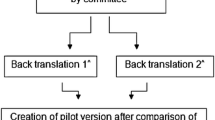Abstract.
Depressive symptoms and related emotional distress are prevalent among patients with facial neuromuscular disorders, and the psychological distress impacts the functional disabilities associated with the facial impairment. A specific impairment in the ability to smile may elevate the risk for depression, with patients experiencing a reduced physiological feedback associated with smiling as well as the social consequences of the inability to communicate positive emotion. We tested the hypothesis that specific impairments in the ability to smile increase the severity of depressive symptoms in patients with facial neuromuscular disorders. Twenty-nine consecutive patients (mean age, 50.2 years; SD, 17.0 years; range, 18–81 years) with a facial neuromuscular disorder, who volunteered and completed all of the assessment measures participated. Facial neuromuscular impairments were assessed using multiple measures of facial motility and dysfunction, and emotional functioning was assessed using self-report measures of depression, anxiety, and positive and negative affect. Severity of global facial impairment was statistically controlled in evaluating the association between specific impairment in smiling and the degree of depressive symptoms. Separate hierarchical linear regression analyses indicated the specific impairment of smiling contributed to the prediction of depression (R 2= .41, df = 3,25, p= .00) and anxiety (R 2= .35, df = 3,25, p= .00), controlling first for the contribution of global impairment and facial physical disability. The specific impairment of smiling did not contribute to the prediction of positive emotional experience. Specific impairment of smiling and physical disability, but not global impairment of facial motion, were key predictors of depression in patients with facial neuromuscular disorders. The results emphasize the need to assess and treat depression and anxiety in patients with a facial neuromuscular disorder.
Similar content being viewed by others
Author information
Authors and Affiliations
Rights and permissions
About this article
Cite this article
VanSwearingen, J., Cohn, J. & Bajaj-Luthra, A. Specific Impairment of Smiling Increases the Severity of Depressive Symptoms in Patients with Facial Neuromuscular Disorders. Aesth. Plast. Surg. 23, 416–423 (1999). https://doi.org/10.1007/s002669900312
Published:
Issue Date:
DOI: https://doi.org/10.1007/s002669900312




